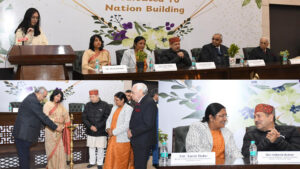
• Under Protection of Children from Sexual Offences (POCSO) Act, 1,719 cases of child sexual abuse were registered in 2019. In 93% cases girls were victims, in which highest cases were of rape (953) and sexual assault (593). Of the 7% cases (123) where boys were victims, 72% were unnatural offences while 13% were rapes.
• POCSO Act requires cases to be solved in 1 year by a special court- in 2019 POCSO court in Delhi completed trial in only 118 cases of which in just 25% cases (30) the judgement was given within one year.
• In 2019, out of 14,836 kidnapped and abducted persons 35% were recovered alive, fallen from 48% recovered in 2017 of 15,682 persons.
• Investigation was not completed in 58% cases of crime against women and 55% cases of crime against children in 2019.
• Of the total IPC cases investigated (3,10,983) in 2019 only 16% of the cases were charge-sheeted.
• Out of 2,92,647 IPC cases to be tried in Delhi’s courts in 2019, judgement was given in only 10% of the cases.
• Reporting of cases has fallen in all major crimes in last five years in Delhi- murder (9%), rape (1%), molestation (46%), kidnapping/abduction (24%).
• Only 4 questions were asked by MPs on crime against women and no questions on crime against children in Delhi from Budget 2019 to Budget 2020 although this is a major problem in Delhi.
BCR NEWS (Ajay Shastri/Delhi): Praja Foundation launched its report on the ‘State of Policing and Law & Order in Delhi, 2020’ on Thursday, November 5, 2020 highlighting the urgent need for a complete overhaul in various areas of policing and law and order in Delhi, to improve the functioning of the institution in the city.
The policing and law and order system has fallen into a continuous trap of overworked police personnel and overburdened judiciary which only reduces public trust in these institutions, leading to fall in reporting of cases. This is a very perilous situation that tempts at a breakdown of the institutional machinery that maintains security, safety and order in the country, and therefore requires immediate attention.
“In the case of Delhi, this has already been put to serious test in events preceding the pandemic. Any attempt to rebuild faith in the police and the law and order system would first require a serious overhaul – implementation of reforms long due and setting up of independent monitoring systems.” said Nitai Mehta, Founder and Managing Trustee, Praja Foundation.
“It has been fourteen years since the Supreme Court judgement on implementation of police reforms like separating the functions of investigation and law and order- which ensures that a police officer doesn’t have to leave his/her investigation for say a bandobast duty. Although Delhi started a pilot for the same in 2019, it has not yet been implemented fully in the city”, said Milind Mhaske, Director, Praja Foundation.
“This is clearly reflected in the fact that of the total IPC cases investigated (3,10,983) in 2019 only 16% of the cases were charge-sheeted. Further, investigation was not completed in 58% cases of crime against women and 55% cases of crime against children in 2019”, added Mehta.
“Delayed investigation piles on to a delayed trial and consequently delayed justice. Out of 2,92,647 IPC cases to be tried in Delhi’s courts in 2019, judgement was given in only 10% of the cases. Poor investigation also reflects in low conviction – 59% of the cases of crime against women and 38% cases of crime against children were acquitted or discharged in 2019.” said Mhaske.
One of the ways adopted to reduce this high pendency of cases was passing of special laws. One such example is the Protection of Children from Sexual Offences (POCSO) Act, 2012 which, recognising the need for controlling and providing speedy justice in the case of sexual crimes against children, provided for these cases to be completed within one year from the date of cognisance while being tried in a special POCSO court.
“Crime in India data shows that while annually there are 1000+ cases of sexual crimes against children registered under POCSO in Delhi, less than 10% have been tried and judgement given in POCSO courts. In 2019, 1,719 child sexual abuse cases (969 rape, 604 sexual assault, 90 unnatural offences, 50 sexual harassment) under POCSO were registered in Delhi. In the same year POCSO courts adjudged just 118 cases. Moreover, only 25% of these judgements were pronounced within one year (as required by the Act).” stated Mhaske.
“This points to the fact that just setting up additional courts or provisions in law will not help until the entire process is streamlined, causes for delay are analysed and corrected timely. For this, the reform in separation of investigation and law and order functions as mentioned above is the first step”, added Mehta.
“A bigger, and more challenging aspect, is to sensitize and train the people operating within the system. What any victim first needs, is an unbiased, co-operative and sensitive police. This needs to be ingrained as a part of not just induction and regular in-service training but also in the selection criteria. Similarly, for the judiciary there is a need to create an incentive structure for people to prefer to be a part of the judicial system- only then can the paucity of judges and prosecutors be met,” said Shri Shanti Narain, Secretary General of IC Centre for Governance.
“We need people to be partners in policing through a police-public relationship of trust and collaboration, to not just effectively report and investigate crimes or maintain law and order, but to address and tackle the inherent and underlying causes of crime.”, concluded Mehta.
About PRAJA Foundation:
Over the last two decades Praja has been working towards enabling accountable governance. We conduct data driven research on civic issues and inform key stakeholders such as Elected Representatives (ER), citizens, media, and government administration and work with ERs to equip them to address inefficiencies in their work processes, bridging the information gaps, and mobilising them in taking corrective measures while advocating for change.
PRAJA’s goals are simplifying people’s lives, empowering the citizens and government with facts and creating instruments of change to improve the quality of life of people in India. PRAJA is committed to creating an accountable and efficient society through people’s participation.
For media queries, please contact:
Yogesh Mishra (+91 97699 92083)
Jennifer Spencer (+91 99305 21103)
Email ID: – media@praja.org







